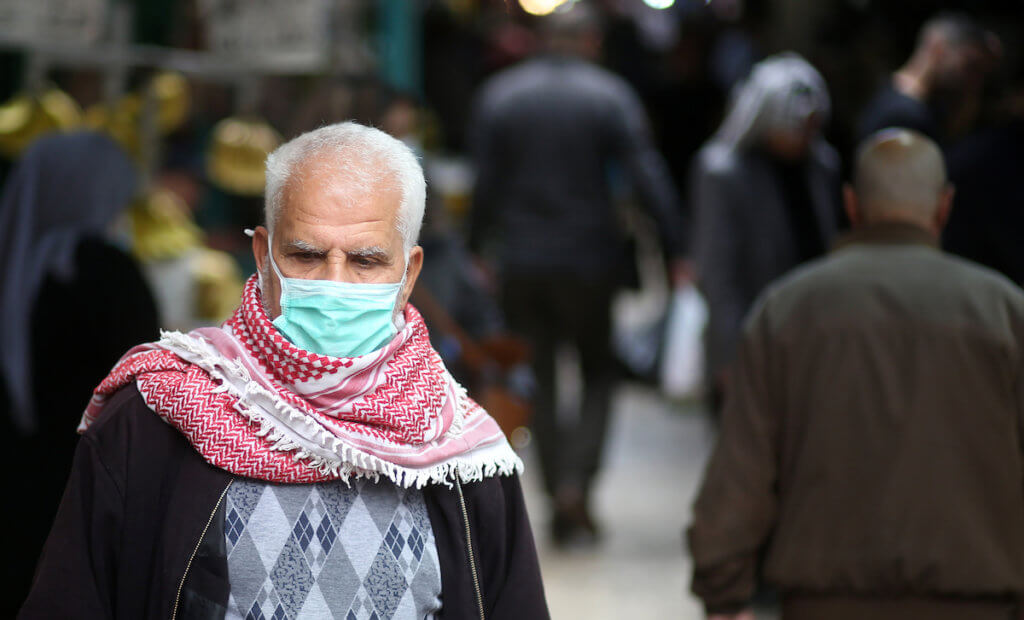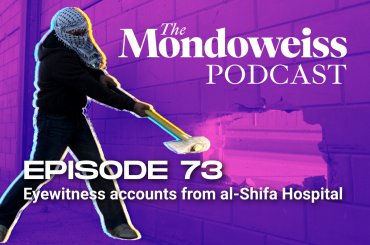The Palestinian Authority officially declared an end to the coronavirus lockdown in the occupied West Bank on Monday, nearly three months after the first state of emergency was declared.
During a press conference in Ramallah, Palestinian Prime Minister Mohammed Shtayyeh announced that the 3 million Palestinian residents of the West Bank could expect a return to normal life, albeit with some restrictions, once the current Eid holidays are over.
Banks, government ministries, courts, shops, and public transportation networks are set to reopen on Wednesday morning, while mosques and churches will be opened beginning at dawn prayers on Tuesday morning.
Shtayyeh credited a “sharp decline” in coronavirus cases across the occupied territories, with only 122 active cases — 38 in the Gaza Strip, 60 in the Jerusalem governorate, and 24 in Hebron — as the reason for the government’s decision to reopen.
According to Shtayyeh, the government will be enforcing a number of health safety protocols on businesses and institutions, as well as citizens, to prevent another outbreak of the virus. Anyone found to be violating the government’s rules will be subject to legal repercussions.
Worshipers, for example, must maintain socially distanced within houses of worship, and must be wearing face masks. In the case of Muslim worshipers, people will be asked to perform ablution at home, and must bring their own prayer rugs with them.
He assured that certain sectors of the economy that posed higher risk for virus transmission like wedding and event halls, sports clubs, restaurants, and daycare centers will be opened pending further health protocols to be announced in the coming days.
Shtayyeh also reassured citizens that they had nothing to fear over the return of nearly 30,000 laborers from Israel prior to the Eid holiday, saying that the government found no positive cases among a “random sample” of 5,408 tests.
“The easing in the measures and gradual return to normal life is being taken with caution,” the premiere stressed. “If we see new cases developing, we will reinstate all previous measures,” he warned.
PA Faces Violent Pushback
The announcement to reopen the country comes after a turbulent Eid weekend, filled with protests and violent interactions with Palestinian security forces in several cities accross the West Bank.
Prior to the Eid al-Fitr holiday, the government announced a four-day closure for the duration of the holiday in order to prevent people from visiting extended friends and family, a customary tradition on Eid.
Police and security forces re-erected checkpoints in cities across the West Bank that had previously been lifted for the course of Ramadan, and reinforced closures of shops and businesses that had been operating relatively unhindered for the month.
Shop owners in Bethlehem clashed with police officers who attempted to enforce the government’s closure, causing a scuffle that resulted in officers shooting two civilians in the legs.
The ensuing confrontations forced police across the city to abandon their posts, for fear that their presence could spark more violent clashes.
Similar incidents took place in the cities of Hebron and Tulkarem, as people clashed with local forces over the closure of shops and mosques, with some people breaking open the padlocks on the doors of mosques and flooding the places of worship for Eid morning prayers.
In the wake of such incidents, it became increasingly clear that the government had no other choice than to open up the economy and end the lockdown. The restrictions that had once kept the streets of the West Bank empty back in March were no longer working.
“Practically everything was opened up during Ramadan,” a Bethlehem taxi driver who asked to remain unnamed told Mondoweiss, as he sat outside the city’s main shopping market waiting to pick up passengers.
“So why would they expect people to suddenly go back under lockdown after spending a month out and about?” he asked.
Government vs. Reality
The sentiments of the local taxi cab driver are not unfounded. In fact, they represent the collective attitude of a large sector of the population.
While the state of emergency was officially ended on Monday night, much of the “health protocols” and regulations touted by Shtayyeh have essentially gone missing over the course of the past month.
Throughout Ramadan, police checkpoints inside cities remained unmanned, the alleged 7pm curfew was practically never enforced, and retail shops kept their doors open far beyond the regulated times set by the government.
What was supposed to be a “socially distant Ramadan” turned out to be much like any other Ramadan in Palestine: families and neighbors visited one another to break their fasts together, groups of friends crowded the streets at night after prayers were finished, and in the final days of the month, markets were overflowing with shoppers buying their Eid clothes and gifts.
Even travel between governorates, which supposedly will only be reopened on Wednesday, has gone relatively unhindered for weeks.
Second Wave?
Mondoweiss sat down with the Governor of the Bethlehem district Kamil Hmeid during Ramadan to ask why the reality on the ground was so far off from the picture the government was painting in the media.
Hmeid assured that a “slight easing of restrictions” were made around the Easter and Ramadan holidays due to a decrease in cases.
“We are maintaining checkpoints within the city neighborhoods and between the city and its surrounding villages,” Hmeid told Mondoweiss. “There is a curfew being enforced from 7pm-7am, and we are enforcing social distancing orders in markets and stores around the city,” he said.
But when challenged on the fact that, as per our observations, no curfew was being enforced and social distancing orders were not being followed, Hmeid insisted that “the number of people in the streets are only there because we allow them to be.”
When asked if he feared a second wave of the virus, Hmeid assured that “if we see any rules being violated, we will go back and shut things down again and enforce the rules.”
The narrative put forth by Hmeid at the time echoes similar to the one pushed by Prime Minister Shtayyeh this week.
On paper, the government claims to be enforcing unspecified “health and safety protocols” across the West Bank. The reality on the ground, however, paints a very different picture.
The official reopening of the country seems to be just that — an official, on paper end to the lockdown, that in reality, feels like it’s been over for a while now.


